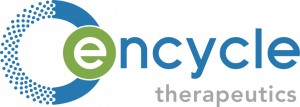
Encycle Therapeutics, a MaRS Innovation start-up company from the University of Toronto, was featured in a BioCentury emerging company profile by Michael J. Haas.
The company is currently raising a Series A financing round and employs eight people.
Haas’ profile, “Encycle: Oral Macrocycles,” is available behind a pay wall on the BioCentury website.
Here’s a short excerpt:
Macrocycle therapies can block protein-protein interactions that are undruggable with small molecules; however, oral availability and cell penetration remain key challenges. Encycle Therapeutics Inc.’s chemistry platform generates drug-like macrocycles against validated targets to treat diseases for which oral therapies are needed.
Marketed inhibitors of protein-protein interactions include biologics and other molecules large enough to target the wide, shallow surfaces involved in those interactions, but can only bind extracellular targets. Macrocycles can have sufficient size to block protein-protein interactions yet remain small enough to penetrate cells and block intracellular interactions that biologics and small molecules cannot.
Founded on chemistry from University of Toronto for cyclizing peptides and non-peptidic molecules, Encycle’s macrocycles incorporate three features that are not all found in other companies’ compounds — the absence of sulfur, the presence of intramolecular hydrogen bonding motifs, and an upper limit on size, according to President and CEO Jeffrey Coull.
According to Andrew Roughton, VP of biology and operations, the absence of sulfur enhancesthe metabolic stability of macrocycles, while intramolecular hydrogen bonding enables them to fold and present a non-polar surface to the lipophilic cell membrane, thereby enhancing cell penetration.
The resulting molecules — which Encycle has dubbed nacellins — have longer in vivo half-lives than sulfur-containing macrocycles and greater cell penetration than macrocycles lacking intracellular hydrogen bonding motifs.
“These are our key advantages over our competitors,” Coull said.
Roughton added Encycle’s nacellins have a ring size of six or seven amino acids, which is better for oral availability than a larger ring.
Encycle’s lead nacellin program inhibits integrin alpha(4)beta(7) to treat inflammatory bowel disease (IBD).
. . .
Encycle has raised C$2.5 million ($2.3 million) in seed funding — largely from MaRS Innovation — and is raising C$10-C$15 million ($9.3-$14.0 million) in a series A round that would fund the integrin alpha(4)beta(7) program through Phase II. Encycle expects to close the round in 1Q15.
Encycle has also completed a project funded by the Quebec Consortium for Drug Discovery (CQDM) to generate a target-agnostic library of 1,500 nacellins. Each of the four pharma partners involved the project — AstraZeneca, GlaxoSmithKline plc, Merck & Co. Inc. and Pfizer Inc. — have the right to screen the library against two targets of its choice. Those screenings will begin this year.
Click here for a link to the full profile.
Posted by Elizabeth Monier-Williams, director of marketing communications.

